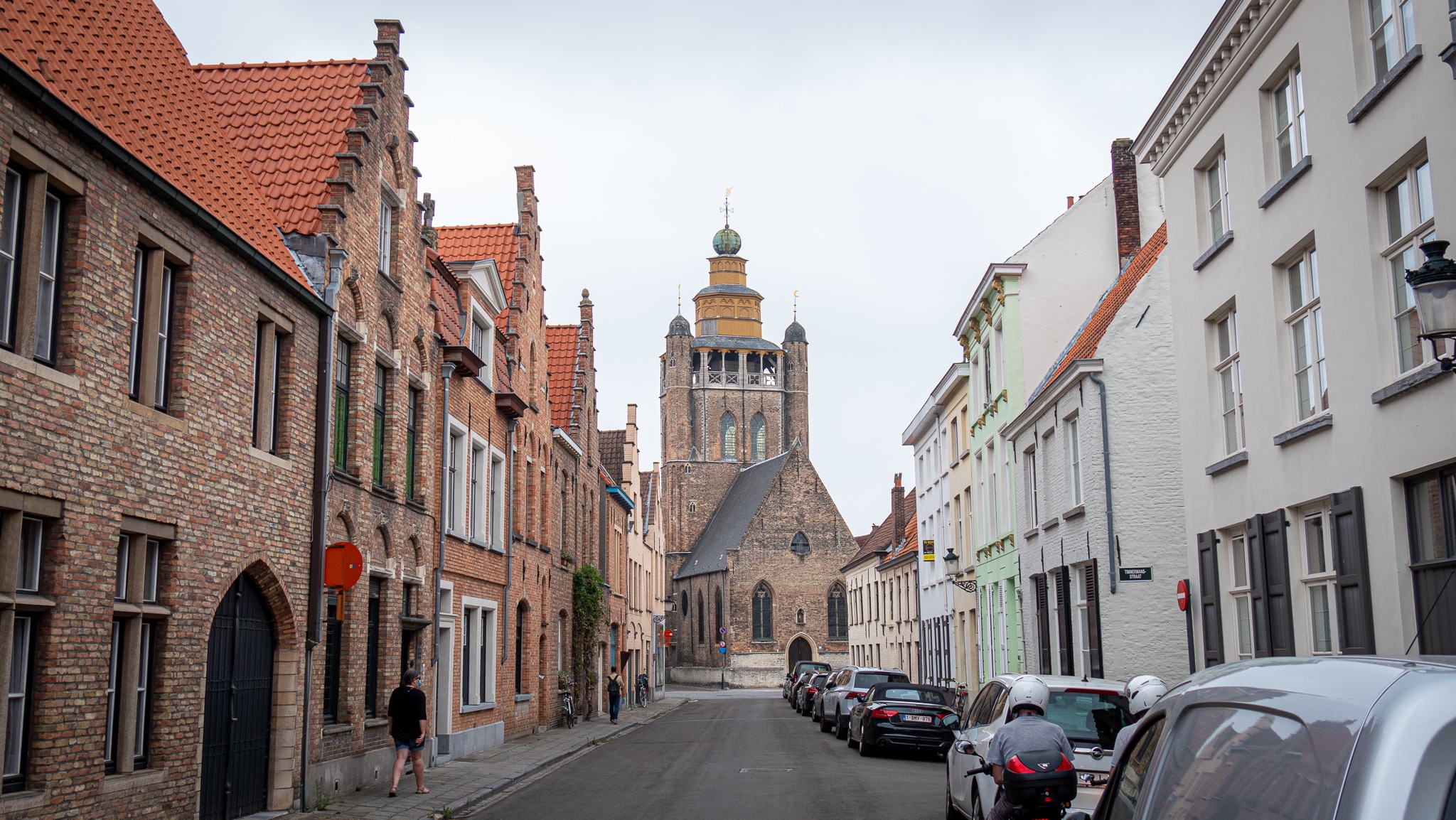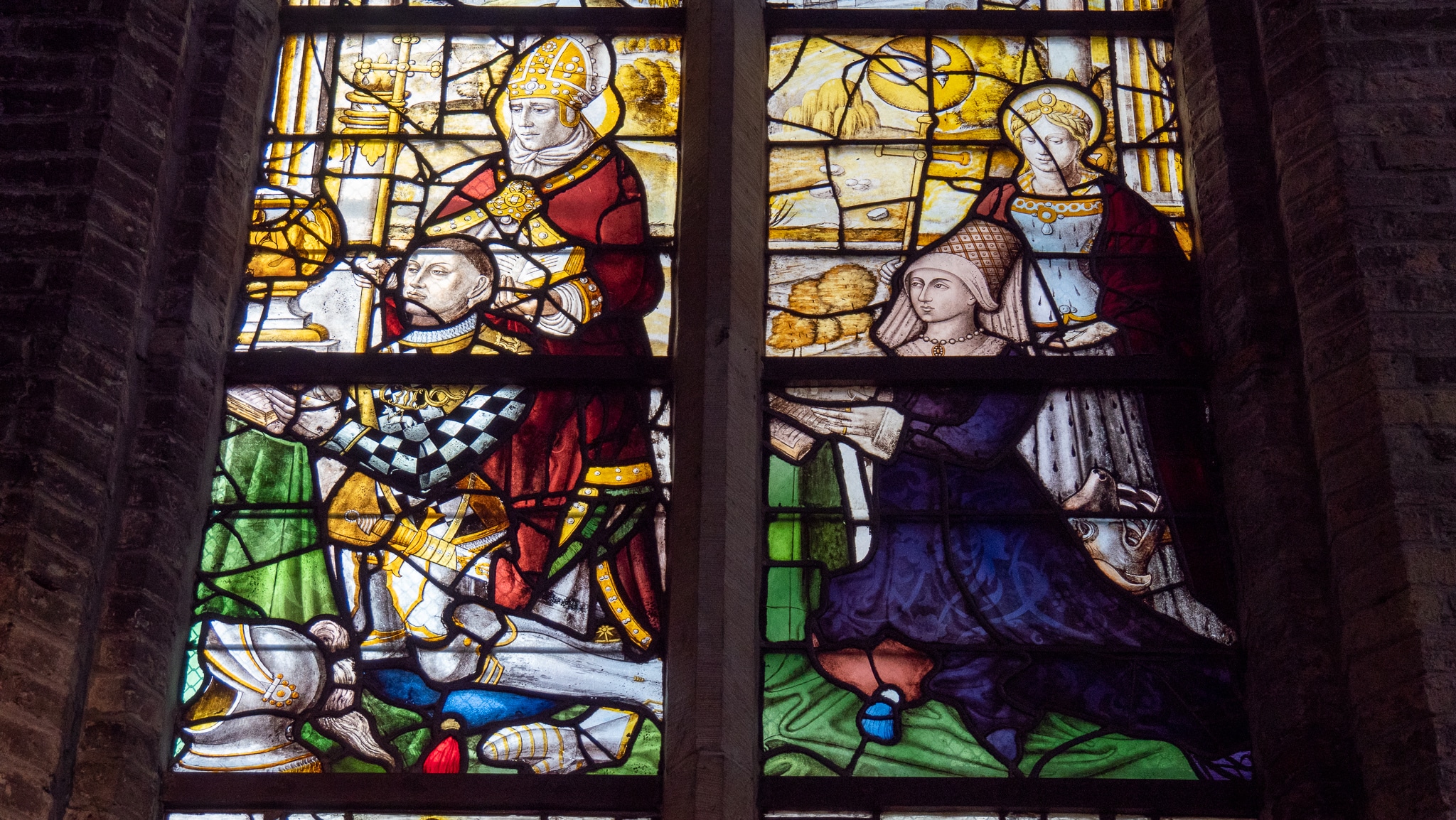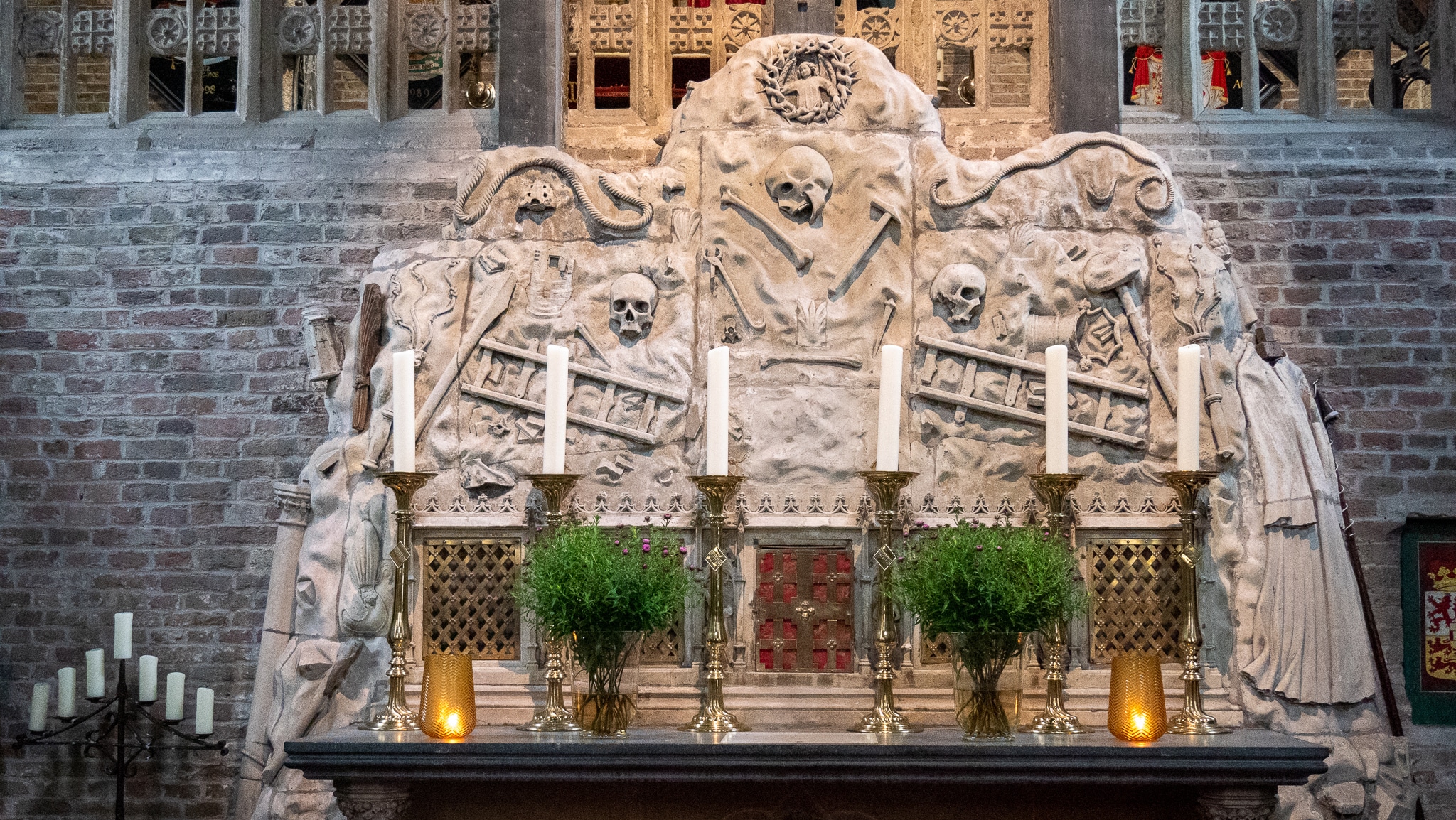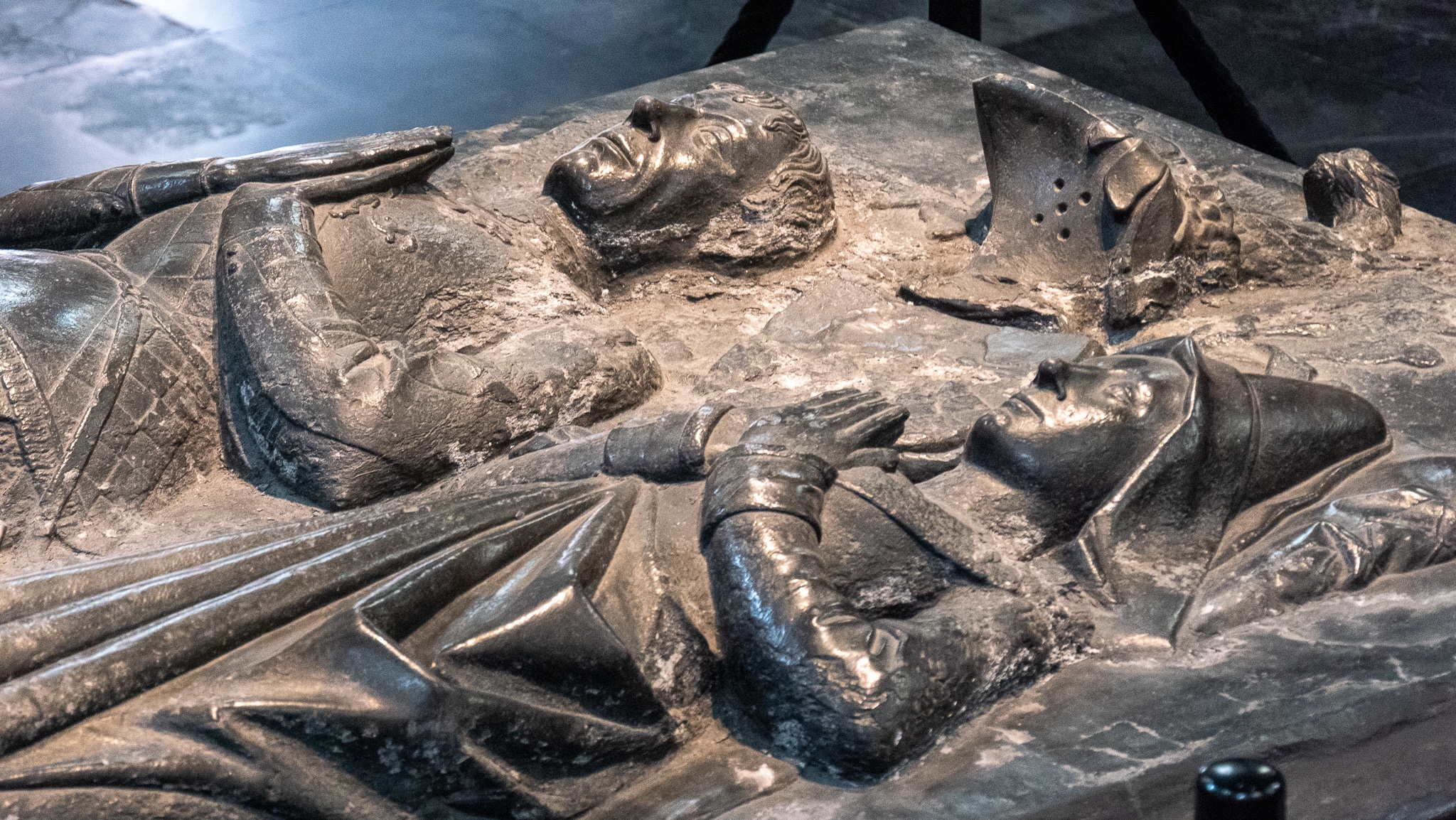An Almost Hidden Medieval Estate in Bruges
The only church under private ownership in Bruges, which once counted numerous parochial churches and abbeys within its walls, is situated in the district of Sint-Anna. The most musical of all Flemish poets, Guido Gezelle, was born and died there at the English abbey. It is an area where you still encounter city guards and mills with their blades turning proudly on the green ramparts.
 The Jerusalem Church
The Jerusalem Church© Tom Christiaens
Opicino Adorno arrived in Sluis around 1320 with a Genoese galley and his Italian wife. He settled in Bruges, the dominant commercial and financial centre of northwest Europe at the time. A century later the family, which had come to be known as the Adornes, belonged to the city’s elite and had amassed a considerable fortune.
 As a merchant, politician and diplomat Anselm Adornes expanded the special patrimony which is now known as the Adornes Domain
As a merchant, politician and diplomat Anselm Adornes expanded the special patrimony which is now known as the Adornes Domain© Tom Christiaens
Anselm Adornes was born in 1424. As a merchant, politician and diplomat he expanded the special patrimony which is now known as the Adornes Domain with a magnificent patrician house, a garden, alms houses for women in need and the spectacular Jerusalem Church with its imposing octagonal tower. He had them built after a pilgrimage to the Holy Land, as a copy of the Church of the Holy Sepulchre in Jerusalem. The sandstone Calvary that symbolises Golgotha with the sculpted Instruments of the Passion serves as a unique altarpiece. Of course, a relic of Christ is kept in the church.
 The sandstone Calvary that symbolises Golgotha with the sculpted Instruments of the Passion serves as a unique altarpiece
The sandstone Calvary that symbolises Golgotha with the sculpted Instruments of the Passion serves as a unique altarpiece© Tom Christiaens
Anselm's heart
The middle of the church is dominated by the mausoleum of Anselm in full armour, along with his wife Margareta vander Banck, who came from Bruges. At her feet lies a dog as a sign of true loyalty. Only Anselm’s heart is actually buried here, because as a friend of the king of Scotland he was murdered by his rebellious brother’s militia and buried in Scotland. In fact at the end of his life he also fell into disgrace in Bruges, and was tortured and humiliated. After the death of Charles the Bold at Nancy, Anselm had tried to intermediate between the house of Burgundy and the rebellious people of Bruges who felt oppressed by the duke, a move which turned out badly for him.
 The mausoleum of Anselm Adornes and his wife Margareta vander Banck
The mausoleum of Anselm Adornes and his wife Margareta vander Banck© Tom Christiaens
For lovers of Marguerite Yourcenar’s L’Oeuvre au Noir (The Abyss) there is also the fact that in this church the young Zeno, with the beautiful arrogance of youth, took his leave of a scrawny girl he had already forgotten, with the words, ‘Je pars, Wivine (…). Je vais voir si l’ignorance, la peur, l’ ineptie et la superstition verbale règnent ailleurs qu’ici.’ (‘Farewell Wivine … I am going to find out if ignorance, fear, stupidity and unwritten superstition reign elsewhere as they do here.’)
For six centuries the Adornes Domain remained in the hands of the same family
The history of the Adornes Domain is impressive: for six centuries it remained in the hands of the same family, even surviving the French revolution. Today the seventeenth generation is subject to Duke and Duchess Maximilien and Véronique of Limburg Stirum, patrons of the Jerusalem foundation and managers of the domain since 2000. Their motto is ‘Sharing to bring to life – bringing to life to preserve.’ They have also opened the domain to visitors, socio-cultural projects and exhibitions. A living heritage.
Further reading:
Véronique Lambert, The Adornes Domain and the Jerusalem Chapel in Bruges, A Unique Heritage of the Middle Ages, Amsterdam University Press, Amsterdam, 2018.












